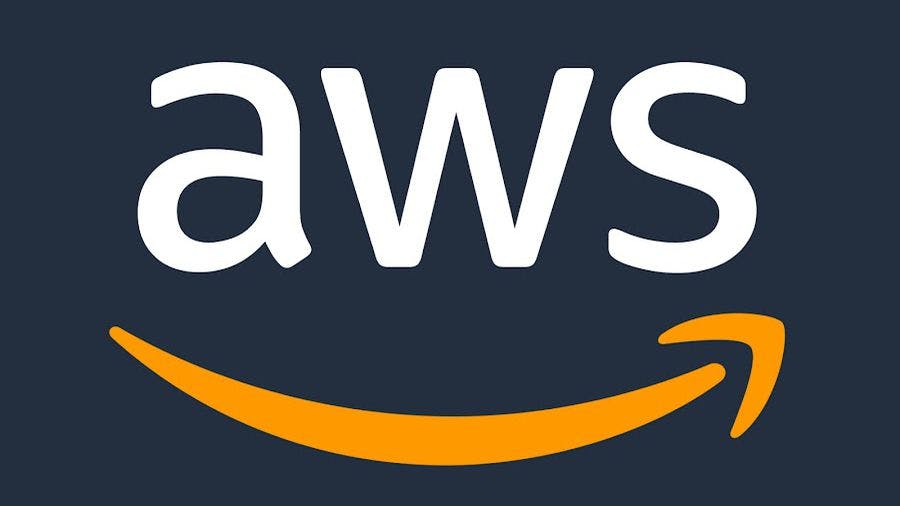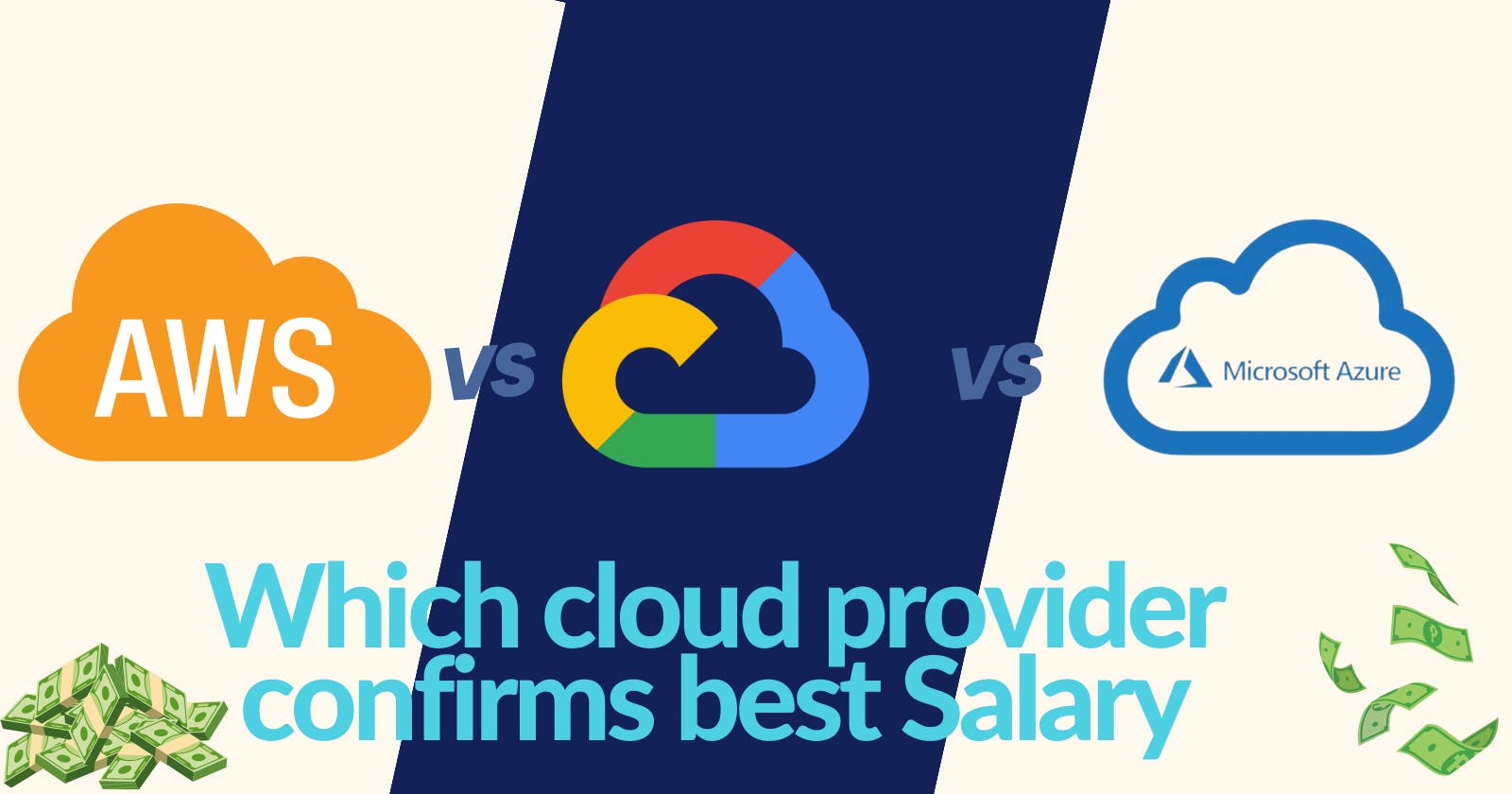Comparing Jobs and Salary: AWS, Azure, and GCP
Which Cloud Platform Offers the Best Opportunities?
Table of contents
- Overview of Job Opportunities in Cloud Computing
- Salary Comparison of Cloud Platform Jobs
- Demand for AWS Professionals in the Job Market
- Job Prospects and Salaries for Azure Professionals
- Opportunities and Salaries for GCP Professionals
- Key Factors to Consider When Choosing a Cloud Platform for Your Career
- Certifications and Training for AWS, Azure, and GCP
- Job Search Tips and Resources for Cloud Platform Professionals
- Conclusion: Which Cloud Platform Offers the Best Opportunities?
Are you looking to build a career in the cloud computing industry? With the increasing demand for cloud services, platforms like AWS, Azure, and GCP are offering numerous job opportunities. But which cloud platform provides the best opportunities for aspiring professionals? In this article, we will compare jobs and salary prospects between AWS, Azure, and GCP to help you make an informed decision.
When it comes to job prospects, all three platforms have a high demand for skilled professionals. AWS, as the pioneer in cloud computing, has a vast market share and offers a wide range of career paths, including roles like Solutions Architect, DevOps Engineer, and Cloud Security Specialist. Azure, known for its strong integration with Microsoft technologies, offers career opportunities in areas like AI, IoT, and Big Data. GCP, Google's cloud platform, is gaining popularity and offers roles in machine learning, data engineering, and cloud infrastructure.
Salary is another crucial factor to consider. Depending on the role and level of expertise, professionals working with these platforms can expect competitive salaries. However, the salary range may vary based on location and experience.
Stay tuned as we delve deeper into the job prospects and salary potential of AWS, Azure, and GCP, helping you decide which cloud platform offers the best opportunities for your career.

Overview of Job Opportunities in Cloud Computing
The cloud computing industry has seen exponential growth in recent years, leading to a surge in job opportunities. As businesses continue to adopt cloud technologies, the demand for skilled professionals who can manage and optimize these platforms has skyrocketed. AWS, Azure, and GCP are the leading cloud service providers, and they offer a wide range of job roles and career paths.
AWS, being the pioneer in cloud computing, holds the largest market share and has an extensive ecosystem of services. This translates to a diverse range of career opportunities within the AWS platform. Some popular job roles in AWS include Solutions Architect, DevOps Engineer, Cloud Security Specialist, and Big Data Engineer. These roles require a deep understanding of AWS services and architectures, as well as relevant certifications.
Azure, on the other hand, is known for its strong integration with Microsoft technologies. This makes it a popular choice for businesses already using Microsoft products. As a result, Azure offers excellent job prospects in areas such as AI, IoT, Big Data, and application development. Job roles in Azure include Azure Solution Architect, AI Engineer, Data Engineer, and DevOps Engineer. Having a solid understanding of Microsoft technologies, along with Azure-specific certifications, can greatly enhance your career prospects in this platform.
GCP, Google's cloud platform, is gaining popularity and rapidly expanding its market share. With Google's reputation for innovation and technological expertise, GCP offers exciting opportunities in machine learning, data engineering, and cloud infrastructure. Job roles in GCP include Machine Learning Engineer, Data Engineer, and Cloud Architect. GCP certifications, such as Google Certified Professional Cloud Architect and Google Certified Professional Data Engineer, can give you a competitive edge in landing these roles.

Salary Comparison of Cloud Platform Jobs
When considering a career in the cloud computing industry, salary is an important factor to take into account. Depending on the role and level of expertise, professionals working with AWS, Azure, and GCP can expect competitive salaries. However, it's essential to note that the salary range may vary based on factors such as location, experience, and specific job requirements.
In general, cloud platform professionals command higher salaries compared to traditional IT roles. The demand for their specialized skills and the critical nature of cloud infrastructure contribute to the higher earning potential. According to industry reports, the average salary for an AWS Solutions Architect ranges from $130,000 to $170,000 per year, while a DevOps Engineer can earn between $110,000 and $150,000 per year. Azure professionals, such as Azure Solution Architects, can earn between $130,000 and $170,000 per year, while Data Engineers and AI Engineers can expect salaries in the range of $120,000 to $160,000 per year. GCP professionals, including Cloud Architects and Data Engineers, can earn salaries similar to their AWS and Azure counterparts.
It's important to remember that these figures are just averages, and individual salaries can vary based on factors such as experience, location, and the specific demands of the job role. Additionally, as the cloud computing industry continues to evolve, salaries may change over time. Therefore, it's crucial to stay updated with the latest trends and market demands to negotiate the best salary package.

Demand for AWS Professionals in the Job Market
AWS, being the market leader in cloud computing, has a significant demand for skilled professionals. The sheer number of organizations using AWS services ensures a steady stream of job opportunities for AWS-certified professionals. In fact, AWS certifications have become highly sought after in the industry, as they validate a candidate's expertise and proficiency in AWS technologies.
One of the most popular job roles in AWS is the Solutions Architect. As a Solutions Architect, you are responsible for designing and implementing scalable, cost-effective, and secure cloud solutions for clients. This role requires a deep understanding of AWS services, architectures, and best practices. Additionally, AWS DevOps Engineers, Cloud Security Specialists, and Big Data Engineers are also in high demand.
To land a job in AWS, it's essential to have relevant certifications. AWS offers a range of certifications, including AWS Certified Solutions Architect, AWS Certified Developer, and AWS Certified SysOps Administrator. These certifications demonstrate your proficiency in AWS services and increase your chances of getting hired.

Job Prospects and Salaries for Azure Professionals
Azure, with its strong integration with Microsoft technologies, offers unique job prospects in the cloud computing industry. Businesses that already use Microsoft products find it easier to transition to Azure, making it a popular choice among enterprises. As a result, Azure professionals are in high demand, particularly in areas such as AI, IoT, and Big Data.
Azure Solution Architects play a critical role in designing and implementing cloud solutions using Azure services. They work closely with clients to understand their business requirements and create scalable, secure, and cost-effective solutions. Other job roles in Azure include AI Engineers, Data Engineers, and DevOps Engineers.
To enhance your job prospects in Azure, it's beneficial to acquire relevant certifications. Microsoft offers certifications like Microsoft Certified: Azure Solutions Architect Expert, Microsoft Certified: Azure AI Engineer Associate, and Microsoft Certified: Azure Data Engineer Associate. These certifications validate your Azure skills and demonstrate your ability to design and implement solutions on the Azure platform.
In terms of salaries, Azure professionals can expect competitive compensation. The average salary for an Azure Solutions Architect ranges from $130,000 to $170,000 per year. Data Engineers and AI Engineers can earn between $120,000 and $160,000 per year, while DevOps Engineers can expect salaries in the range of $110,000 to $150,000 per year.

Opportunities and Salaries for GCP Professionals
Google Cloud Platform (GCP) is gaining popularity as an alternative to AWS and Azure. With Google's reputation for innovation and its vast array of services, GCP offers exciting career opportunities for professionals in the cloud computing industry. GCP is particularly known for its expertise in machine learning, data engineering, and cloud infrastructure.
Job roles in GCP include Machine Learning Engineer, Data Engineer, and Cloud Architect. Machine Learning Engineers are responsible for designing and implementing machine learning models and algorithms using GCP's machine learning services. Data Engineers focus on managing and optimizing data pipelines and storage systems on the GCP platform. Cloud Architects, on the other hand, are responsible for designing and implementing scalable and secure cloud solutions using GCP services.
To increase your chances of landing a job in GCP, it's beneficial to obtain relevant certifications. Google offers certifications like Google Certified Professional Cloud Architect and Google Certified Professional Data Engineer. These certifications validate your GCP skills and demonstrate your ability to design and implement solutions on the GCP platform.
In terms of salaries, GCP professionals can expect competitive compensation similar to their AWS and Azure counterparts. Cloud Architects and Data Engineers in GCP can earn salaries ranging from $130,000 to $170,000 per year.
Key Factors to Consider When Choosing a Cloud Platform for Your Career
Aspiring professionals in the cloud computing industry often find themselves faced with the question of which cloud platform to choose. While AWS, Azure, and GCP all offer excellent job opportunities and competitive salaries, there are certain factors to consider before making a decision.
1. Market Demand: Evaluate the market demand for each cloud platform in your desired location. Research job postings and industry reports to gauge the demand for skilled professionals in each platform.
2. Job Roles and Specializations: Consider your interests and career goals. Each cloud platform offers different job roles and specializations. Choose a platform that aligns with your skill set and career aspirations.
3. Integration with Existing Technologies: If you are already working with certain technologies, consider how well each cloud platform integrates with them. This can impact your job prospects and the ease of transitioning to a cloud-based role.
4. Certifications and Training: Look into the certifications and training programs offered by each cloud platform. These credentials can enhance your resume and increase your chances of getting hired.
5. Future Growth and Innovation: Consider the future growth potential and innovation of each cloud platform. Look for platforms that are continuously evolving and introducing new services and technologies.
By considering these factors, you can make an informed decision about which cloud platform offers the best opportunities for your career.
Certifications and Training for AWS, Azure, and GCP
Certifications play a crucial role in the cloud computing industry, as they validate your skills and expertise in specific cloud platforms. AWS, Azure, and GCP each offer their own certification programs, designed to demonstrate your proficiency in their respective platforms.
AWS offers a comprehensive range of certifications, including AWS Certified Solutions Architect, AWS Certified Developer, and AWS Certified SysOps Administrator. These certifications cover various aspects of AWS services, architectures, and best practices. They are highly regarded in the industry and can significantly enhance your job prospects in AWS.
Microsoft offers the Microsoft Certified: Azure Solutions Architect Expert, Microsoft Certified: Azure AI Engineer Associate, and Microsoft Certified: Azure Data Engineer Associate certifications for Azure professionals. These certifications validate your ability to design and implement solutions on the Azure platform, and they are highly valued by employers.
GCP offers certifications like Google Certified Professional Cloud Architect and Google Certified Professional Data Engineer. These certifications demonstrate your proficiency in designing and implementing solutions on the GCP platform, and they can greatly boost your career prospects in GCP.
In addition to certifications, it's essential to stay updated with the latest trends and advancements in cloud computing. Attend webinars, workshops, and conferences to expand your knowledge and network with industry professionals. Continuous learning and upskilling are crucial in a rapidly evolving industry like cloud computing.
Job Search Tips and Resources for Cloud Platform Professionals
As a cloud platform professional, there are several strategies you can employ to enhance your job search and increase your chances of landing your dream role. Here are some tips and resources to consider:
1. Build a Strong Online Presence: Create a professional LinkedIn profile and showcase your cloud platform expertise. Engage in industry discussions, join relevant groups, and share your knowledge to establish yourself as an authority in the field.
2. Networking: Attend industry events, join professional organizations, and connect with cloud platform experts and professionals. Networking can open doors to new job opportunities and provide valuable insights into the industry.
3. Job Portals and Websites: Explore job portals specific to the cloud computing industry, such as AWS Jobs, Azure Careers, and Google Cloud Careers. These platforms often have dedicated sections for cloud platform professionals, making it easier to find relevant job openings.
4. Consult Recruitment Agencies: Reach out to recruitment agencies specializing in cloud computing and cloud platform roles. They have access to exclusive job opportunities and can provide guidance throughout the job search process.
5. Leverage Social Media: Follow cloud platform-related hashtags on social media platforms like Twitter and Instagram. Engage with industry influencers, participate in discussions, and stay updated with the latest news and job openings.
6. Continuous Learning: Stay updated with the latest trends and advancements in cloud computing. Take advantage of online learning platforms like Udemy, Coursera, and LinkedIn Learning to acquire new skills and certifications.
Remember, the job search process can be competitive, so it's essential to showcase your skills and experience effectively. Tailor your resume and cover letter to highlight your cloud platform expertise, certifications, and relevant projects. Additionally, prepare for technical interviews by practicing common cloud platform-related questions and scenarios.

Conclusion: Which Cloud Platform Offers the Best Opportunities?
In conclusion, AWS, Azure, and GCP all offer excellent job opportunities and competitive salaries for aspiring professionals in the cloud computing industry. AWS, being the pioneer in cloud computing, holds the largest market share and offers a wide range of career paths. Azure, with its strong integration with Microsoft technologies, provides job prospects in areas like AI, IoT, and Big Data. GCP, Google's cloud platform, is gaining popularity and offers roles in machine learning, data engineering, and cloud infrastructure.
When choosing a cloud platform for your career, consider factors such as market demand, job roles, integration with existing technologies, certifications and training, and future growth potential. By evaluating these factors, you can make an informed decision that aligns with your skills, interests, and career aspirations.
Remember, certifications play a crucial role in the cloud computing industry. AWS, Azure, and GCP offer their own certification programs that validate your expertise and proficiency in their respective platforms. Acquiring relevant certifications can significantly enhance your job prospects and increase your earning potential.
Lastly, utilize job search tips and resources specific to cloud platform professionals to streamline your job search and increase your chances of success. Build a strong online presence, network with industry professionals, leverage job portals and recruitment agencies and continuously upskill to stay competitive in the ever-evolving cloud computing industry.
With the right skills, certifications, and job search strategies, you can embark on a successful career in the cloud computing industry, leveraging the opportunities offered by AWS, Azure, or GCP.

